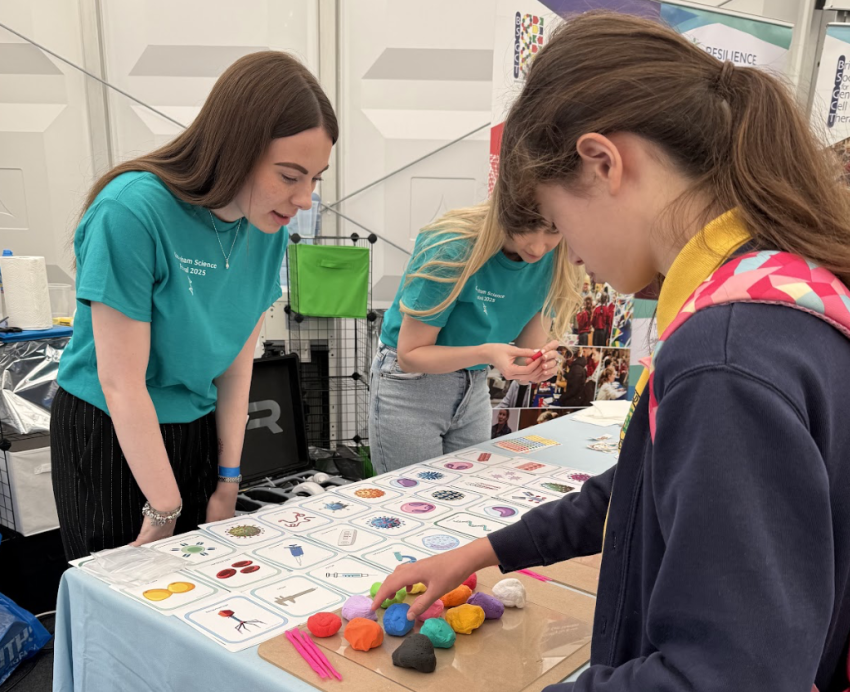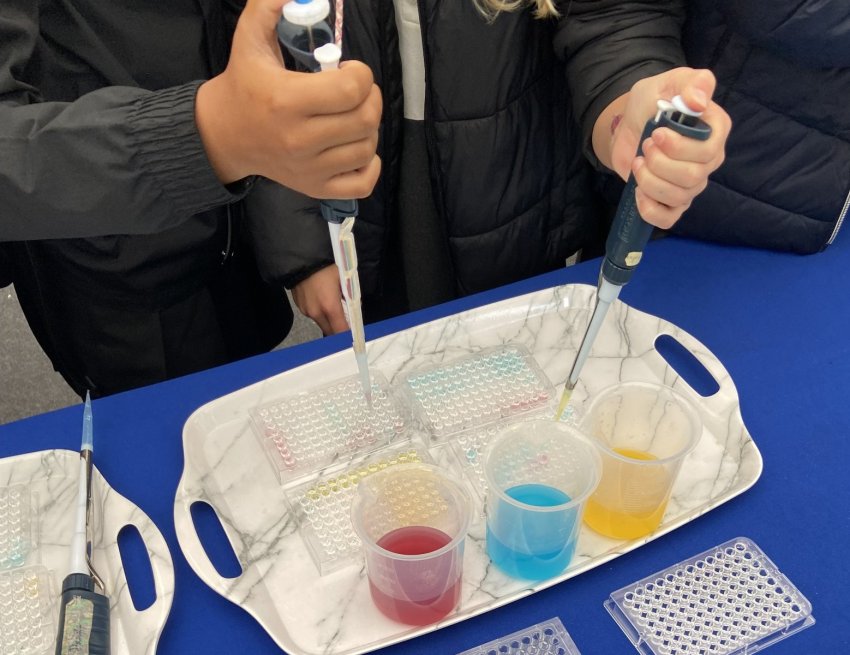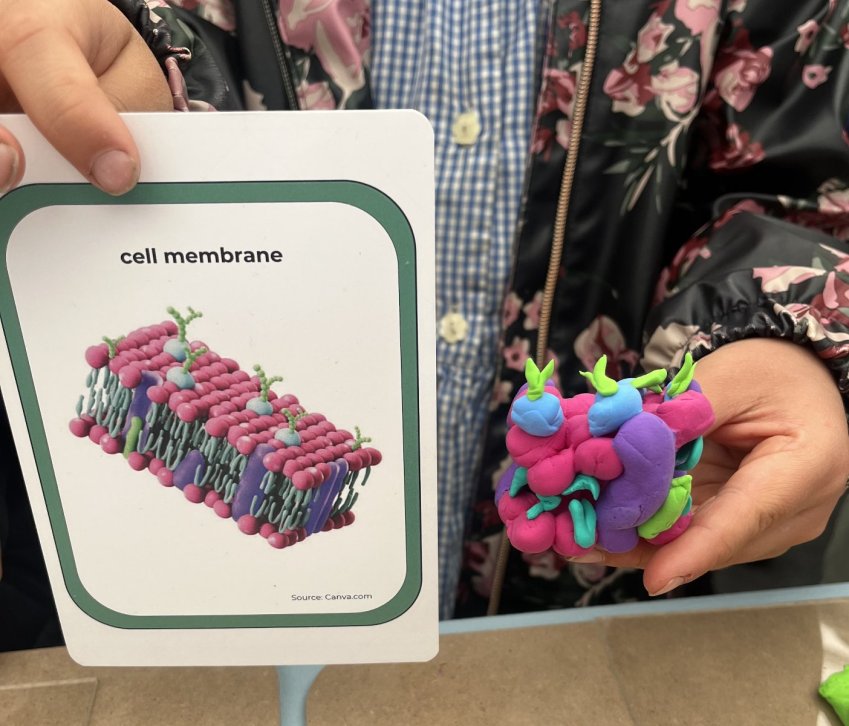Exploring Gene Therapy and Science Engagement at Cheltenham Science Festival 2025!

This summer, I’m interning with LifeArc as a communications strategist for the Innovation Hubs for Gene Therapies. As part of this role, I had the opportunity to join the team at Cheltenham Science Festival 2025 – a week-long celebration of science, technology, and discovery. It was an experience that not only broadened my knowledge of gene therapy, but also reminded me why science communication and outreach matter so much, especially for young people.
I have just finished my third year of study at the University of Edinburgh, pursing a degree in Infectious Diseases. Although I come from a scientific background, gene therapy was a relatively new and unfamiliar area to me. I had a basic understanding that it involved modifying genetic material to treat disease – through techniques such as CAR T-cell therapy and CRISPR-Cas9 – but I hadn’t fully appreciated how advanced, diverse, and impactful the field has become. That changed at the Cheltenham Science Festival, where I was surrounded by passionate researchers and experts working at the forefront of this innovation. On the first day, I found myself listening closely to the conversations the volunteers were having with the visitors, absorbing as much information as I could. Through their stories, I began to understand not just the science behind gene therapy, but its transformative potential in real-world clinical care.
I joined LifeArc through the Saltire Scholar Programme, which supports students from widening participation backgrounds across Scotland. Coming from rural Caithness, a place where science outreach and access to opportunities like these were limited, I felt incredibly proud and fortunate to be part of this experience. While I was amazed by the excellent work schools in the Central Belt are doing to inspire the next generation of scientists, it also made me reflect on how important it is to expand this type of engagement to every corner of the UK. Had something like the Cheltenham Science Festival come to my school growing up, I think I would’ve found my passion for science even sooner.
"Had something like the Cheltenham Science Festival come to my school growing up, I think I would’ve found my passion for science even sooner."
The Innovation Hubs for Gene Therapies stand was buzzing with activity from the moment the festival opened. One of the best parts of the experience was seeing how curious and excited the children were, and how naturally they engaged with the activities we were showing them. I spent a lot of time at the clay modelling station, where children were able to create their own models of cells, viruses, and different lab equipment. I had some intriguing conversations about what red blood cells, platelets, and white blood cells do, and I was impressed by how much the children already knew. Some pupils could even name specific types of white blood cells and explain their functions, which was great to see what they were already being taught at school!

Another hit was the temporary tattoo station, which illustrated the accessibility of science to all ages. The children absolutely loved it, and I have to admit, so did I. By the end of the week, I had collected a few science-themed tattoos, with my favourite being the influenza virus (though several children joked I’d now “caught the flu!”). These interactions brought so much joy, helping the experience to be more personal and memorable.
Later in the week, I spent more time helping at the pipetting station. This was an activity that introduced children to a key piece of lab equipment that I, personally, didn’t use until I started university. I was genuinely surprised by how many of them had already encountered pipettes before, and even more impressed by how confidently they used them. Watching them handle the tools with such ease made me realise just how far science education and outreach has come in recent years. There is a noticeable shift happening in the world of science engagement: children are no longer just passive learners, they’re being actively invited into the scientific process through hands-on, immersive experiences that spark genuine curiosity. This is something I feel the Innovation Hubs for Gene Therapies did well. We created an open, welcoming environment where children could explore the science of gene therapy, engage with complex ideas in a fun and accessible way, and most importantly, feel empowered to ask questions and think like young scientists.

I also got the chance to try out the virtual reality activity on the stand. It allowed users to immerse themselves in the world of cells and gene therapy, walking through interactive environments that explained complex biological processes in a clear, engaging way. I had never experienced anything like it, and it was incredible to watch the children (and their parents!) become engrossed in the simulations. Technology like this has the power to transform how we teach science.
"This experience reaffirmed the power of science communication, not just to inform, but to connect and inspire."
I attended four out of the six days at Cheltenham Science Festival, and it was an incredibly rewarding experience. Waves of school groups would flood our stand, creating a whirlwind of questions, laughter, and excitement. Yet even in the busiest moments, it was inspiring to see how eager the children were to engage, proudly showing off their clay models of viruses, mastering pipetting, and asking questions about the science behind gene therapy. What stood out the most was how the festival made science feel approachable and alive. It wasn’t abstract or intimidating but hands-on, inclusive, and genuinely fun. Children weren’t just absorbing facts; they were challenging ideas, exploring concepts, and beginning to see themselves as a part of the scientific world.

This experience reaffirmed the power of science communication, not just to inform, but to connect and inspire. It reminded me why outreach must continue to grow, especially in under-represented and rural communities. Every child should have the chance to see themselves as a future scientist, engineer, or innovator.
Personally, gene therapy had always seemed quite distant and complex; something confined to textbooks or briefly touched on in lectures. However, working on the Innovation Hubs for Gene Therapies interactive stand at Cheltenham Science Festival transformed that perception. I saw first-hand that gene therapy isn’t just the future of medicine, it’s already here, and it’s something that can be understood, appreciated, and embraced by all ages. I’m proud to have played a part in sharing that story, and I’m excited to continue this journey with LifeArc throughout the summer!
By Lucy King
Science Communications Intern, LifeArc